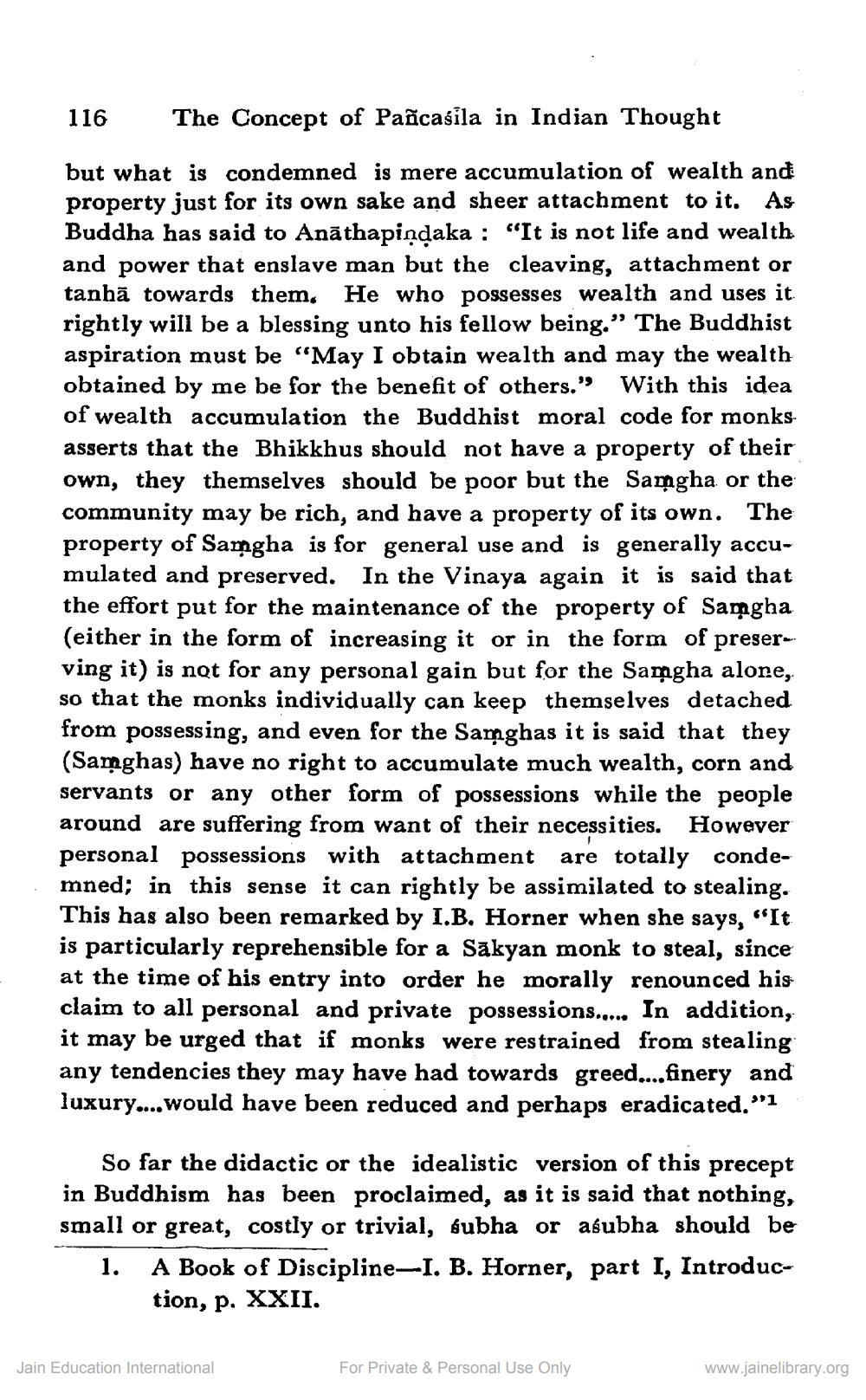________________
116
The Concept of Pancasila in Indian Thought
but what is condemned is mere accumulation of wealth and property just for its own sake and sheer attachment to it. As Buddha has said to Anāthapiņdaka : "It is not life and wealth and power that enslave man but the cleaving, attachment or tanhā towards them. He who possesses wealth and uses it. rightly will be a blessing unto his fellow being.” The Buddhist aspiration must be “May I obtain wealth and may the wealth obtained by me be for the benefit of others.” With this idea of wealth accumulation the Buddhist moral code for monksasserts that the Bhikkhus should not have a property of their own, they themselves should be poor but the Samgha or the community may be rich, and have a property of its own. The property of Samgha is for general use and is generally accumulated and preserved. In the Vinaya again it is said that the effort put for the maintenance of the property of Samgha (either in the form of increasing it or in the form of preserving it) is not for any personal gain but for the Samgha alone, so that the monks individually can keep themselves detached from possessing, and even for the Samghas it is said that they (Samghas) have no right to accumulate much wealth, corn and servants or any other form of possessions while the people around are suffering from want of their necessities. However personal possessions with attachment are totally condemned; in this sense it can rightly be assimilated to stealing. This has also been remarked by I.B. Horner when she says, “It is particularly reprehensible for a Sākyan monk to steal, since at the time of his entry into order he morally renounced his claim to all personal and private possessions..... In addition, it may be urged that if monks were restrained from stealing any tendencies they may have had towards greed....finery and luxury....would have been reduced and perhaps eradicated."1
So far the didactic or the idealistic version of this precept in Buddhism has been proclaimed, as it is said that nothing, small or great, costly or trivial, subha or agubha should be 1. A Book of Discipline-I. B. Horner, part I, Introduc
tion, p. XXII.
Jain Education International
For Private & Personal Use Only
www.jainelibrary.org




